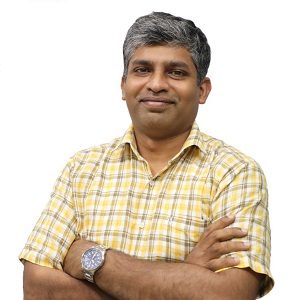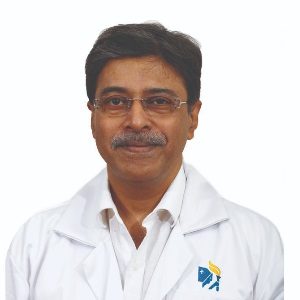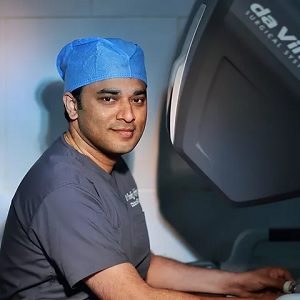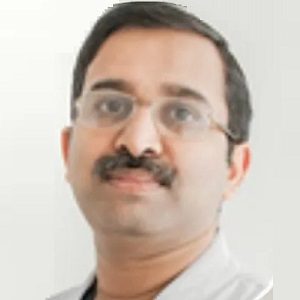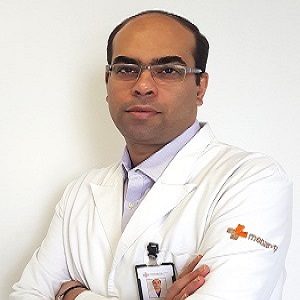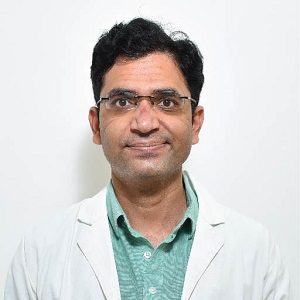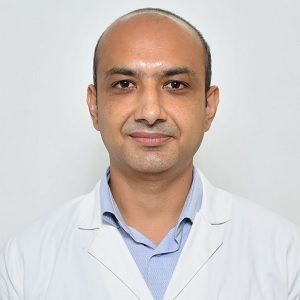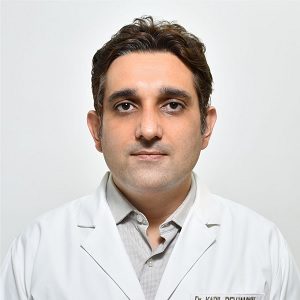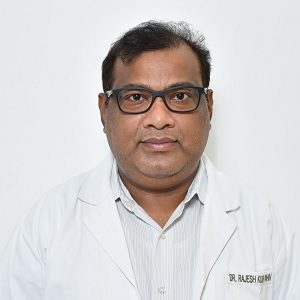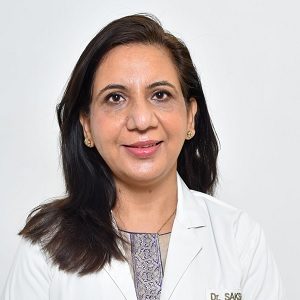Best Doctors in India for Cholecystectomy
- Liver Transplant Surgeon and HPB Surgeon, Chennai, India
- Over 15 years’ experience
Profile Highlights:
- Dr. Selvakumar Naganathan is one of the best liver transplant surgeons in India with nearly 15 years of experience.
- He has carried out more than 2000 procedures, including 300 donor & 500 recipient hepatectomies, cadaver transplantations, retrieval of cadaver livers, and live donor liver transplants.
- He also established many liver transplantation centers across India & other countries.
- General Surgeon and Surgical Gastroenterologist, Chennai, India
- Over 27 years’ experience
Profile Highlights:
- Dr. Raghunath K J is a well-known name in the field of general surgery with an experience of more than 27 years.
- He went under training in advanced Laparoscopic surgery from Canada and France.
- Dr. Raghunath pioneers many prestigious projects in the UK.
- Dr. Raghunath has a specialized interest in Gall Bladder Stone treatment, Hernia, GI Cancer Surgery, Laparoscopic Sleeve Resection, Endoscopic Surgery, etc.
- Colorectal Surgeon and Robotic Surgeon, Chennai, India
- Over 26 years’ experience
Profile Highlights:
- Dr. Venkatesh Munikrishnan is one of the best Gastroenterologists and Colorectal Surgeons in Chennai, having 21 years of experience in managing disorders that need surgical treatment.
- Dr. Munikrishnan specializes in surgical oncology, endoscopy, Gastritis Treatment, etc.
- He is also active in research; one of his research on CT Colonography fetched a grant from Bracco, Milan, Italy.
- GI Surgeon and Liver Transplant Surgeon, Gurugram, India
- Over 20 years’ experience
Profile Highlights:
- Dr. Amit Nath Rastogi is a pioneer in the field of liver transplant surgery. He completed his fellowship in liver transplant surgery at Sir Gangaram hospital while being a part of the largest liver transplant program in the country.
- Furthermore, he received his training in robotic liver surgery from IRCAD -Strasbourg, France, and advanced robotic HPB training from Grosseto.
- Liver Transplant Surgeon, Gurugram, India
- Over 10 years’ experience
Profile Highlights:
- Dr. Prashant Vilas Bhangui is one of the highly trained liver transplant specialists who received his training in Surgical Gastroenterology and Liver Transplantation.
- He also holds a European Inter-University Diploma in Hepato-Biliary-Pancreatic Cancers.
- Dr. Prashant is further interested to work in certain fields which include hepatocellular carcinoma, colorectal liver metastases, and living donor liver transplantation. Besides this, he has also published several journals on these subjects.
- Gastroenterologist, Gurugram, India
- Over 7 years’ experience
Profile Highlights:
- Dr. Abhinandan Mishra is one of the young Gastroenterology doctors in Gurugram who is particularly interested in inflammatory bowel disease treatment.
- Dr. Abhinandan Mishra offers Endoscopic Retrograde Cholangiopancreatography, Ascites tap, Endoscopy, Peroral Endoscopic Myotomy, Capsule Endoscopy, Esophageal Manometry, Magnetic Resonance Cholangiopancreatography, etc.
- Gastroenterologist, Gurugram, India
- Over 18 years’ experience
Profile Highlights:
- Dr. Atul Sharma is a renowned Gastroenterology practitioner in Gurugram and is particularly interested in Third Space Endoscopy and Per Oral Endoscopic Myotomy (POEM).
- He presented several papers on Manometry, Luminal gastroenterology, and interventional Gastroenterology during training in Advanced Interventional GI Endoscopy.
- Gastroenterologist, Gurugram, India
- Over 15 years’ experience
Profile Highlights:
- Dr. Kapil Jamwal is a renowned GI practitioner in Gurugram with an extensive experience in digestive and liver disease.
- The specialist offers treatment for Hepatitis B, Jaundice, Hepatitis C, Inflammatory Bowel Syndrome, Acute Pancreatitis, Liver Diseases, and Irritable Bowel Syndrome.
- Gastroenterologist, Gurugram, India
- Over 18 years’ experience
Profile Highlights:
- Dr. Rajesh Padhan is a renowned Gastroenterologist in Gurugram with an extensive experience of more than 18 years in the field.
- He is skilled in carrying out various endoscopy procedures such as Colonoscopy, Endoscopic retrograde cholangiopancreatography, Endoscopic ultrasound, upper GI endoscopy, etc.
- Gastroenterologist, Hepatologist, Gurugram, India
- Over 25 years’ experience
Profile Highlights:
- Dr. Sakshi Karkra is one of the best Pediatric gastroenterologists in Gurugram.
- She has special interest/ expertise in Colonoscopy, Upper GI Endoscopy, Capsule endoscopy, Enteroscopy, Endoscopic variceal ligation, Foreign body removal, Stricture & achalasia dilatation, Polypectomy, Anal manometry, Liver Biopsy, and Colonic manometry.
Best Hospitals in India for Cholecystectomy
CHOLECYSTECTOMY
Cholecystectomy (or gall bladder removal) is a surgical procedure for the removal of your gall bladder. The gall bladder is a pear-shaped organ present below the liver on the upper right portion of your abdomen. The function of the gall bladder is to collect and store bile which is a digestive fluid that the liver produces. The surgery is quite common with hardly any complications.
Your doctor will perform either Laparoscopic Cholecystectomy or, in some cases, an Open Cholecystectomy. Nearly 80% of people having gall stones undergo Cholecystectomy.
Causes of Cholecystectomy
You don’t need to undergo the surgery if the gall stones aren’t causing any symptoms. However, you may need one if a stone goes into the bile ducts or blocks any of the bile ducts. This may cause a “gall bladder” attack. The pain is intense and knife-like within your abdomen that lasts for many hours. You may face grave conditions if you leave the gall stones untreated, like:
- Cholangitis or inflamed bile ducts
- Cholecystitis or an inflamed gall bladder
- Pancreatitis or an inflamed pancreas
Your doctor may ask you to undergo the surgery if you have gall stones in the gall bladder (cholelithiasis), inflammation in the gall bladder (cholecystitis), inflammation in the pancreas (pancreatitis), gall stones in the bile duct (choledocholithiasis), or large gall bladder polyps.
Pre-requisites for the surgery
You may need to prepare yourself before you undergo the surgery. Your surgeon may instruct you to:
- Stop taking medications- You will have to stop taking some medications and supplements that increase the risk of bleeding.
- Skip eating the night before the surgery- You will have to skip eating the night before the surgery and neither drink nor eat 4 hours prior to the surgery.
- Bring your personal items- Although there are no chances of any complications, you may need to stay in the hospital for a day or two. So, you must have your personal items.
What to expect?
Before the surgery
During the surgery
Your surgeon will adopt any one of the two approaches for performing a Cholecystectomy.
Laparoscopic (Minimally invasive) Cholecystectomy
During Laparoscopic (Minimally invasive) Cholecystectomy, the surgeon will make four incisions on your abdomen. He or she will then insert a tiny video camera into your abdomen. Your surgeon will use surgical tools inserted in your abdomen for gall bladder removal and watch everything on a video monitor kept in the operating room. You will then undergo an imaging test to allow the surgeon to check gall stones or any other problems within the bile duct. Next, he or she will suture the incisions and take you to the recovery area.
Open (Traditional) Cholecystectomy
For Open (Traditional) Cholecystectomy, the surgeon will make an incision of 6 inches in your abdomen on the right side. He or she will pull back the muscles and tissues to see your gall bladder and liver. Your surgeon will remove the gall bladder and suture the incision. The surgery will take around two hours and they will then take you to the recovery area.
After the surgery (Recovery)
The team will take you to a hospital room for the recovery. Your recovery will vary according to the type of surgery you underwent.
Laparoscopic cholecystectomy
After Laparoscopic cholecystectomy, the doctor may allow you to go home the same day as the day of surgery or may recommend a night’s stay to you. You can expect a discharge when you can eat or drink without pain and are able to walk without any problem. However, you may take a week’s time to recover fully.
Open cholecystectomy
After Open cholecystectomy, you may expect discharge from the hospital only after two to three days of the surgery. You may require nearly 6 weeks’ time to fully recover when you reach home.
Results of Cholecystectomy
The surgery will relieve all the discomfort and pain due to the gall stones. It will also prevent the recurrence of the gall stones. You won’t experience digestive problems after the surgery but you may experience loose stools that will resolve after some time. The type of surgery you underwent plays a role in deciding how quickly you will return to normal activities. Recovery from a Laparoscopic Cholecystectomy may take a few day’s time but you may need a few weeks to recover from an Open Cholecystectomy.
Risks of Cholecystectomy
Although the surgery is safe, it may lead to some problems like:
- Infection
- Bile leakage
- Blood clots (deep vein thrombosis)
- Problems with anesthesia
- Swelling
- Damage to your bowel, intestine, or blood vessels
- Pneumonia
- Infection
- Damage to the bile ducts
- Heart problems

